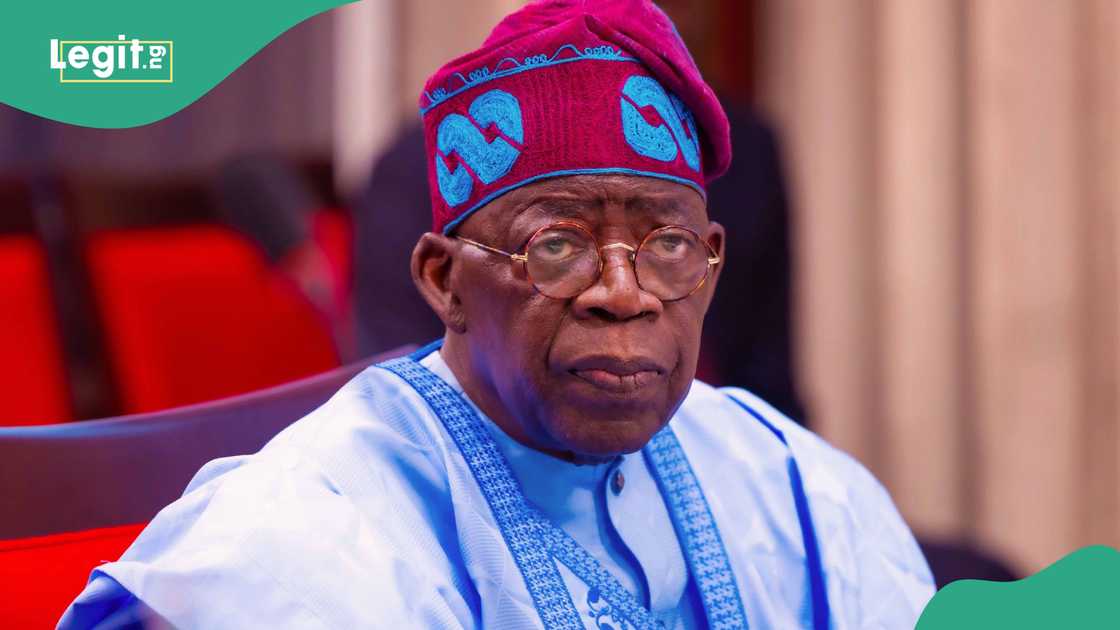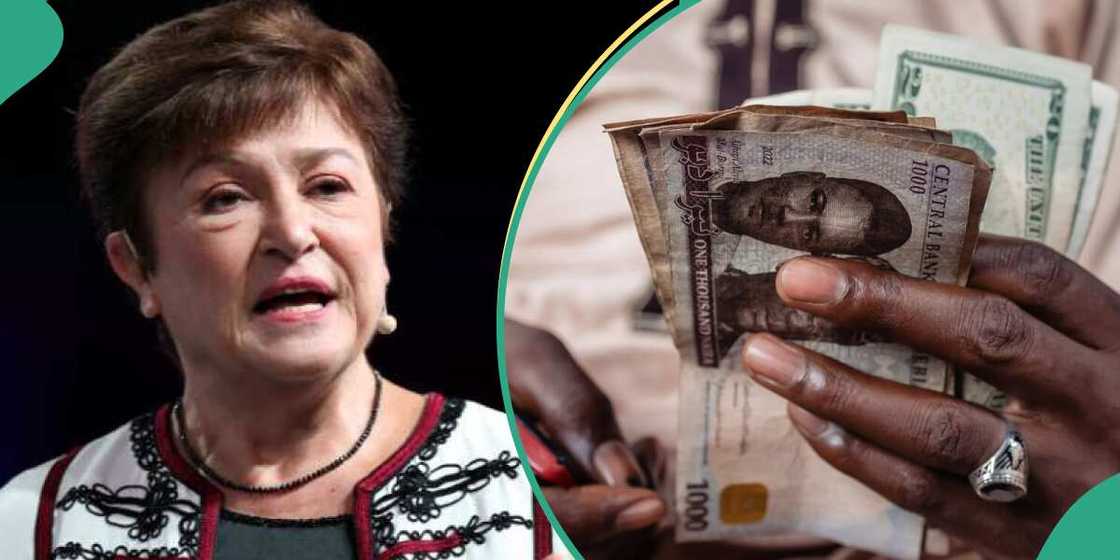FG Successfully Repays Debt as IMF Removes Nigeria From Updated Debtors' List
- The Nigerian government has repaid its IMF loan, prompting the international body to remove the country from its list of debtors officially
- The loan was disbursed in April 2020 under the Rapid Financing Instrument to help Nigeria manage the economic fallout of the COVID-19 pandemic
- In its latest updated list, Nigeria was not included among the countries indebted to the IMF as of May 7, 2025
Legit.ng journalist Dave Ibemere has over a decade of business journalism experience with in-depth knowledge of the Nigerian economy, stocks, and general market trends.
The Federal Government of Nigeria has successfully repaid its debt to the International Monetary Fund (IMF), prompting the global financial institution to officially remove Nigeria from the list of countries with outstanding obligations.

Source: UGC
This development follows the final repayment of the principal amount of its $3.4 billion loan obtained under the IMF’s Rapid Financing Instrument (RFI).
The loan, disbursed in April 2020, at the peak of the COVID-19 pandemic, was designed to provide emergency support for Nigeria’s battered economy, which at the time faced a sharp decline in oil revenues, rising fiscal deficits, and a looming recession.
Nigeria's last repayment of principal was made on April 30, 2025.
IMF removes Nigeria from debtors' list
IMF's latest records, released on May 7, 2025, showed that Nigeria is no longer on its debtors' list, which includes 91 countries, following the full settlement of the principal.
However, Nigeria still has interest-related charges, including interest and administrative fees, which will continue on an annual basis until 2029.
IMF said that Nigeria’s total charge for 2025 is expected to reach SDR 22.35 million (approximately $30.24 million), with payments scheduled across May, August, and November.
The charges will remain consistent through 2029, with annual payments for each year ranging from SDR 25,912,903 in 2026 and 2027 to SDR 25,924,726 in 2028 and SDR 25,901,079 in 2029.
The charges include Net SDR Charges, GRA Basic Charges, and SDR Assessments.
The term Net SDR Charges refers to the interest and associated fees levied by the IMF on its member countries that have borrowed resources from the IMF, denominated in Special Drawing Rights.
The GRA Basic Charges refer to the standard interest and associated fees applied by the IMF on loans issued from its General Resources Account.
SDR Assessments are annual fees levied by the IMF on its member countries participating in the SDR Department.
The IMF’s removal of Nigeria from its list of debtor countries is seen as a significant step toward improving the country’s credit profile and international financial reputation.

Source: Getty Images
Nigeria's efforts to clear its debts
According to IMF data, Nigeria’s outstanding debt to the fund dropped significantly from $2.47 billion in 2023 to $800.23 million in 2024, before being fully cleared in 2025.
The repayments were part of a broader debt servicing strategy that saw Nigeria spend $4.66 billion on external debt obligations in 2024 alone, an increase of 167% from N2.57 trillion recorded in the previous year.
The increase in debt servicing costs is due to increasing global interest rates and the naira depreciation, which made dollar loans more expensive.
Slow gains ahead unless fiscal discipline becomes culture – Expert
A public finance analyst with expertise in fiscal policy, Desire Bobmanuel, has described Nigeria’s repayment of its IMF debt as a positive signal for the country’s economic outlook.
“The repayment of any sovereign debt, and in this case, particularly denominated in foreign currency, can only be good for Nigeria,” he told Legit.ng.
He explained that the development shows growing confidence in Nigeria’s economy, and progress in key areas of policy and reform:
“Such repayment is an indication of increasing underlying economic strength, growing macroeconomic confidence, fiscal responsibility, and monetary policy effectiveness.”
“It demonstrates improving policy credibility and establishes ongoing reforms as being effective in the aggregate.”
He also noted potential long-term benefits for the naira and government spending capacity.
“If this continues, confidence in the Naira should improve, and that should translate into gains in the exchange rate in favor of the Naira. Borrowing costs should begin to come down gradually, which should expand the fiscal space by stretching the capacity of the Naira to procure goods and services, particularly public goods and services.”
Nonetheless, Bobmanuel cautioned that meaningful results would require sustained fiscal discipline.

Read also
Tinubu's presidency: Group fires IMF for allegedly downgrading Nigeria's economic growth projection
“However, just as our current economic predicament got worse gradually and over time, these improvements might even be slower, and can only come to fruition if fiscal fidelity becomes the new national economic culture,” he concluded.
FG spends N13.12 trillion on debt servicing
In a previous report by Legit.ng, the Nigerian government serviced debts with about N13.12 trillion in 2024, representing a 68% increase from N7.8 trillion in 2023.
Data from the Debt Management Office (DMO) showed that debt servicing costs in 2024 exceeded the allocation of N12.3 trillion.
The Nigerian government earmarked N16 trillion for debt servicing, showing its expectation for continued debt-related expenses.
Editorial assistant Ololade Olatimehin provided exclusive commentary from a public finance analyst for this report.
Proofreading by James Ojo, copy editor at Legit.ng.
Source: Legit.ng





